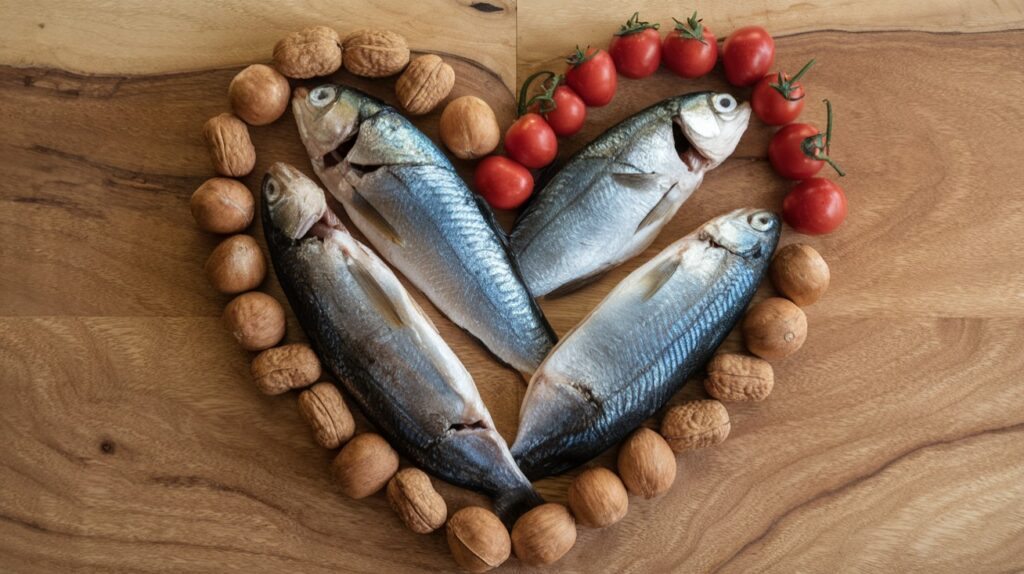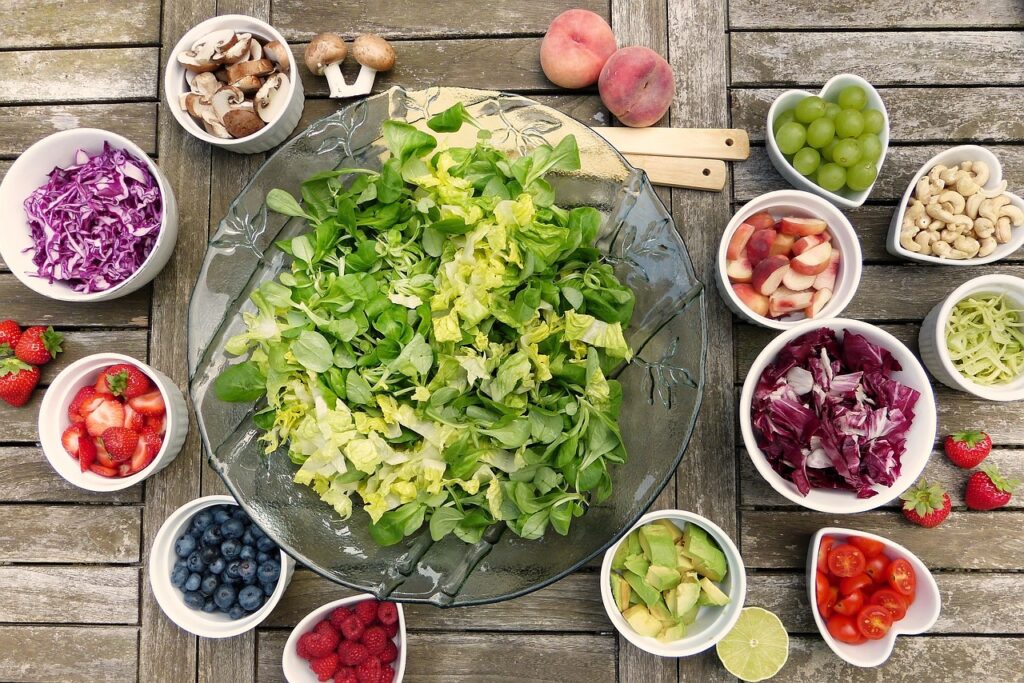Introduction to Top 10 Superfoods to Boost Heart Health and How to Incorporate Them into Your Diet
Your heart works tirelessly to keep you alive, pumping blood and delivering oxygen and nutrients. Still, heart disease remains a leading cause of death worldwide. The good news? A heart-healthy diet can significantly reduce your risk of heart disease and improve overall cardiovascular health. Let’s explore the importance of heart health, the impact of food on your heart, and the top 10 heart-healthy foods to add to your diet.
Why Heart Health Matters
Heart disease statistics paint a sobering picture. According to the World Health Organization, cardiovascular diseases account for nearly 18 million deaths annually, making them the leading cause of death globally. However, many cases are preventable through lifestyle changes, particularly dietary improvements.
A heart-healthy diet is crucial because it helps manage risk factors like high cholesterol, high blood pressure, obesity, and inflammation. By making conscious food choices, you can protect your heart and live a longer, healthier life.
Natural Ways to Boost Your Heart Health
How Food Impacts Cardiovascular Health
The foods you consume directly influence your cholesterol levels, blood pressure, and inflammation. A diet rich in whole foods and low in saturated fats, Trans fats, and added sugars can keep your arteries clear and your heart strong.
Key Nutrients for Heart Health (10 superfoods to boost heart health)
- Omega-3 fatty acids: Reduce inflammation and lower triglycerides.
- Fiber: Helps reduce LDL (bad) cholesterol.
- Antioxidants: Combat oxidative stress, which contributes to heart disease.
- Potassium: Helps regulate blood pressure.
- Healthy fats: Support overall cardiovascular function.

The Top 10 Superfoods to Boost Heart Health
1. Oats: The Cholesterol Buster
- Why they’re great: Oats are high in soluble fiber which is the main ingredient, which helps reduce LDL cholesterol.
- How to enjoy them: Start your every day with oatmeal topped with fresh fruit and nuts, or use oats as a binder in homemade veggie burgers.
2. Salmon: The Omega-3 Powerhouse
- Benefits: Omega-3 is mostly available in salmon fish filled with healthy fatty acids to control your blood pressure and reduce the risk of arrhythmias.
- Preparation tips: Grill or bake salmon with a sprinkle of herbs and a drizzle of olive oil for a quick, heart-healthy meal.
3. Leafy Greens: The Nutritional Goldmine
- Nutrients: Most of the green vegetables are always good for your body. Spinach, kale, and Swiss chard are full of vitamins, minerals, and antioxidants.
- Usage tips: Add them to smoothies, sauté them with garlic, or use them as a base for salads.

4. Nuts: Heart-Friendly Snacks
- Best options: Almonds and walnuts are another best option that is rich in heart-healthy fats and antioxidants.
- Portion control: Stick to a handful (about 1 ounce) per day to avoid excess calories.
5. Berries: Antioxidant Powerhouses
- Why they’re beneficial: Blueberries and strawberries are rich in antioxidants that reduce inflammation.
- Incorporation ideas: Add them to yogurt, oatmeal, or salads for a burst of flavor and nutrients.
6. Avocado: The Good Fat
- Nutritional profile: Packed with monounsaturated fats that improve cholesterol levels and keep your body active.
- Recipe ideas: Spread avocado on whole-grain toast or add it to salads and smoothies. In my view, salad is the best option.
7. Olive Oil: Liquid Gold for Your Heart
- Why it’s healthy: Olive Oil is another product for your body. Extra virgin olive oil is rich in antioxidants and healthy fats. So blood circulation to the heart is uninterrupted.
- Usage: Use it as a salad dressing or to sauté vegetables instead of butter.
8. Legumes: Fiber and Protein-Rich Foods
- Examples: Lentils, chickpeas, and black beans are excellent sources of plant-based protein and fiber.
- Easy recipes: Make a lentil soup or toss chickpeas into salads.
9. Dark Chocolate: A Sweet Treat for the Heart
- Health Connection: Flavonoids in dark chocolate improve heart health by reducing inflammation.
- Tips: Choose dark chocolate with at least 70% cocoa and enjoy it in moderation.

10. Green Tea: The Heart-Boosting Beverage
- Benefits: “Catechins” commonly found in green tea help lower cholesterol and improve artery function. Green tea comes in different flavors and uses mostly antioxidant flavors.
- When to enjoy: Replace your afternoon coffee with a green tea cup for a heart-healthy energy boost. Try to take it after a meal.
Other Foods Worth Mentioning
- Garlic: Lowers blood pressure and improves arterial function.
- Tomatoes: Rich in lycopene, an antioxidant linked to heart health.
- Sweet Potatoes: A nutrient-dense option high in potassium and fiber.
Building a Heart-Healthy Diet (10 superfoods to boost heart health)
The Importance of Variety
A balanced diet ensures you get all the nutrients your heart needs. Combine different food groups, and don’t shy away from experimenting with new recipes.
Meal Planning Tips for a Healthy Heart
- Budget-friendly tips: Buy seasonal produce and bulk whole grains.
- Meal prep: Prepare meals in advance to avoid processed and fast foods.
- Focus: Choose whole, minimally processed foods.
Reduce Stress for a Healthier Heart
Stress management is key to heart health. Practice mindfulness, engage in regular physical activity, and ensure you get enough sleep to keep your heart and mind healthy. More walking is the best option to reduce stress and mindfulness.
Conclusion (10 Superfoods to boost heart health)
The journey to a healthier heart begins with small, manageable changes. Incorporating these top 10 heart-healthy foods and maintaining heart health involves a combination of lifestyle choices and preventive measures. Key factors include a balanced diet rich in fruits, vegetables, whole grains, and lean proteins, regular physical activity, avoiding smoking, and managing stress. Regular check-ups and monitoring of blood pressure, cholesterol levels, and other heart-related metrics are crucial. By adopting these habits, individuals can significantly reduce the risk of heart disease and improve their quality of life.
Frequently Asked Questions
Q: How much salmon should I eat per week for heart health?
A: Aim for two servings (about 3.5 ounces each) of fatty fish like salmon per week.
Q: Can I replace olive oil with another healthy fat?
A: Yes, avocado oil and flaxseed oil are good alternatives.
Q: Are plant-based diets better for the heart?
A: Plant-based diets are rich in fiber, antioxidants, and healthy fats, making them excellent for heart health.
Q: What’s the best way to lower cholesterol naturally?
A: Focus on a diet high in soluble fiber (like oats and legumes) and healthy fats (like nuts and olive oil).
Q: Can dark chocolate really benefit heart health?
A: Yes, as long as it contains at least 70% cocoa and is consumed in moderation.
Q: How do I know if I’m eating the right amount of fiber?
A: Aim for 25-30 grams of fiber daily from whole foods like fruits, vegetables, and legumes.
Q: How does mental health affect your heart?
A: Chronic stress and depression can increase inflammation and blood pressure, leading to heart problems.
Q: Why is walking great for your heart?
A: Walking improves circulation, lowers blood pressure, and strengthens the heart muscle.
To read this article (10 superfoods to boost heart health) again, click here


